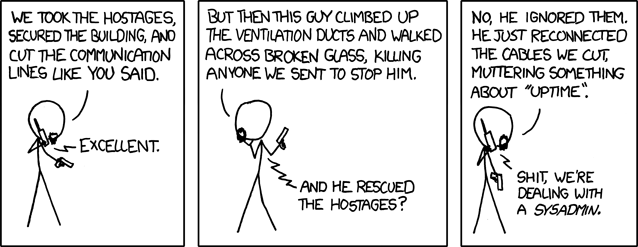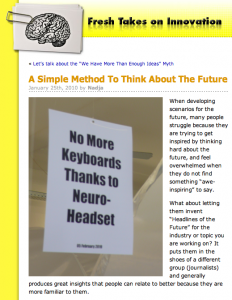Marty writes about VI: VI is an empty room. It needs painted, stud walls, electric points, heating and people to help do all of those things. It needs energy and creativity, ideas and heart. It will need money but for now it has enough to get by. It needs a good internet connection to give … Continue reading “A Room with a VI”
Marty writes about VI:
VI is an empty room. It needs painted, stud walls, electric points, heating and people to help do all of those things. It needs energy and creativity, ideas and heart. It will need money but for now it has enough to get by. It needs a good internet connection to give it tentacles to the world. It needs five businesses willing to take a risk at being all they can be. Why five? Because AirPOS, my spin out, is VI (1) and I’ll be on this journey with everyone else. And I’m very very excited about that.
…
VI has no business plan nor a strategy. It has no board of directors. It has no logo. We’re incubating the incubator too, if that’s not too surreal, and its success will be tied into those within its walls.
I disagree with Marty.
We do need paint, stud walls, electric points, internet access, desks, chairs, cork-boards, whiteboards and people to help make all of this work. And some of those people need to have energy, creativity and ideas and we want to help the people find their feet and make something of their ideas and creativity. But VI is much more than an empty room.
I snapped these pictures a couple of days ago:


Can you see it?
This room is filled with heart.
It’s leaking out the non-double-glazed windows. It’s seeping through the bare floorboards. It’s flowing out the main door and flowing down the sinks and toilets. This room is filled with so much heart that it’s alive.
In the coming weeks we’re going to have a paint party there. We’ll be there from early, hoovering up the dust and detritus, starting to paint over wood and bare plasterboard. We’re going to have power points and lights installed. A phone line will bring annoying ringing noises as well as sluggish ADSL broadband (until we raise enough money to install a leased line).
We don’t have the funds to maintain a large building out in the middle of a wasteland. We don’t have the budget to refurbish this building into a modern office suite with glass walls and an entire videoconferencing suite. We don’t necessarily have the connections to be able to call a President by his first name or have his Special Envoy over for tea. But these things don’t matter and they shouldn’t matter. We have heart to spare.
If you think of us as a competitor then I pity you. If this rag tag bunch of hobos with nothing but a little cash and a worn-out old clothing factory is a competitor then you’ve got a serious problem and you should seriously look at what you have there.
I’m thankful for a few people who have, perhaps unknowingly, pushed me to this. David, Marty, Aidan, Jason, Alex, Rob, Simon, Ian, Bill and others. Some of you will know why, some of you won’t – but all of you have contributed to me putting something on the line and making something happen. You’ve all helped and I hope you can understand that you deserve some of the credit here.
This is just the beginning.






